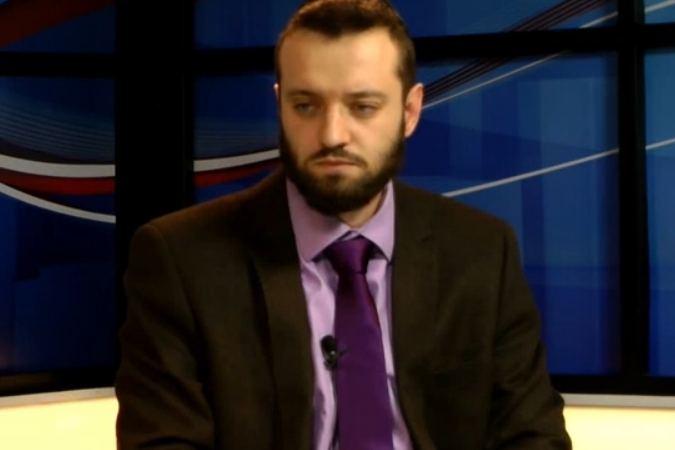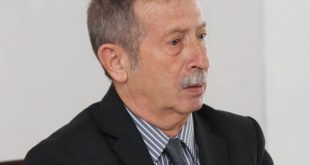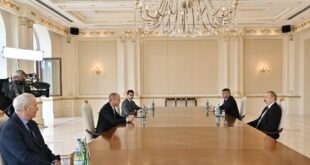
The liberated lands of Azerbaijan’s Karabakh region have vast potential, Israeli lawyer, an expert in international law and international policy Mikhail Finkel told Trend.
Finkel forecasted great agricultural development in Karabakh, also noting that enterprises for artificial breeding of various fish, pharmaceutical enterprises and high-tech production factories can be opened there.
Speaking of the resources in Karabakh, Finkel said this is highly encouraging for all the countries friendly to Azerbaijan, who can help develop the territories in Karabakh.
“Many projects can be implemented there, for the benefit of both the Azerbaijani people, and the country’s friends,” he said.
Finkel emphasized that both agricultural and other enterprises to function in the region will create many jobs and bring a big profits to Azerbaijan.
Commenting on declaration of the city of Shusha as the cultural capital of the country by President Ilham Aliyev, the expert pointed out the significance of this event.
“It’s very important because great opportunities will be opened there for cultural life, the development of musical and theatrical art, literature, many cultural facilities, including theaters, museums, and others will be created,” he noted.
Finkel noted that the victory in the Second Karabakh War (from late Sept. through early Nov.2020) demonstrated that Azerbaijan is a strong state.
“A country that gave a chance to peace negotiations and diplomacy for 30 years, and after numerous provocations from the Armenian side liberated its ancestral lands using force, keeping its territorial integrity is worthy of respect,” he said.
The expert stressed that owing to the wise policy of Azerbaijani President Ilham Aliyev, a renaissance of the liberated territories will come.
Finkel also emphasized that Azerbaijan is a state where he observed unique and harmonious coexistence of various ethnic groups, cultures and religions, speaking about the policy of multiculturalism in the country.
“Today there are two types of countries in the world. The first are national, practically mono-ethnic, or with a very serious bias towards the ideas, philosophy, religion and culture of the majority. The second is sharing the ideology of multiculturalism, where all people are equal components of society and states, and everyone is the bearer of the culture of this big mosaic, great puzzle. Azerbaijan, of course, belongs to the latter category,” concluded the expert.
Following over a month of military action to liberate its territories from Armenian occupation from late Sept. to early Nov. 2020, Azerbaijan has pushed Armenia to sign the surrender document. A joint statement on the matter was made by the Azerbaijani president, Armenia’s PM, and the president of Russia.
A complete ceasefire and a cessation of all hostilities in the zone of the Nagorno-Karabakh conflict was introduced on Nov. 10, 2020.
The conflict between the two South Caucasus countries began in 1988 when Armenia made territorial claims against Azerbaijan. As a result of the ensuing war, the Armenian Armed Forces occupied 20 percent of Azerbaijan, including the Nagorno-Karabakh region and seven surrounding districts. The 1994 ceasefire agreement was followed by peace negotiations.
 Oval Useful news from Azerbaijan and Caucasus
Oval Useful news from Azerbaijan and Caucasus


